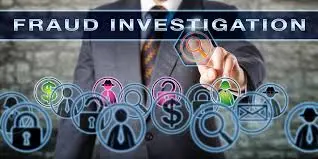Fraud is an ever-present threat in our increasingly digital world, affecting individuals and businesses alike. An experienced private detective, play a crucial role in uncovering deceit and bringing fraudsters to justice. These skilled professionals use a combination of traditional detective work and modern technology to detect and prevent fraudulent activities. Let’s delve into how private investigators operate in the complex world of fraud detection.
The Rise of Fraud in the Digital Age
As technology evolves, so do the tactics of fraudsters. The digital age has brought about new opportunities for deceit, making fraud detection more challenging yet more critical than ever.
1. Cyber Fraud: A Growing Concern
Cyber fraud encompasses a wide range of activities, from identity theft to phishing scams and financial fraud. Private investigators specializing in cybercrime use advanced tools and techniques to trace digital footprints, recover stolen data, and identify perpetrators. Their expertise is invaluable in protecting sensitive information and minimizing financial losses.
2. Insurance Fraud: A Persistent Problem
Insurance fraud costs companies billions of dollars annually. Private investigators are often called upon to verify the legitimacy of claims. This may involve surveillance, interviewing witnesses, and reviewing medical records. By uncovering false claims, investigators help insurance companies maintain their integrity and reduce unnecessary payouts.
Techniques Used by Private Investigators
Private investigators employ a variety of methods to detect and prevent fraud. Their strategies blend traditional detective work with cutting-edge technology.
1. Surveillance and Undercover Operations
Surveillance remains a cornerstone of investigative work. Investigators may conduct physical surveillance or use digital means to monitor suspects. In some cases, undercover operations are necessary to gather firsthand evidence of fraudulent activities. For more insights into such investigative techniques, visit http://bailcobailbonds.com site.
2. Forensic Accounting
Forensic accounting is a specialized field where investigators analyze financial records to uncover discrepancies and fraudulent activities. They look for unusual transactions, inconsistencies, and hidden assets that may indicate fraud. Their findings are often used as evidence in legal proceedings.
The Importance of Background Checks
Background checks are a preventive measure that can help individuals and businesses avoid fraud. By thoroughly vetting potential employees, partners, or tenants, private investigators can identify red flags before they become major issues.
1. Employment Screening
Businesses rely on private investigators to conduct thorough background checks on prospective employees. This includes verifying education and employment history, checking for criminal records, and assessing credit reports. Comprehensive screening helps companies make informed hiring decisions and maintain a trustworthy workforce.
2. Tenant Screening
Landlords use private investigators to screen potential tenants. This process includes checking rental history, credit scores, and criminal backgrounds. By ensuring that tenants are reliable and financially stable, landlords can protect their property and maintain a peaceful living environment for all residents.
Fun Facts About Private Investigators
- Historical Roots: The first known private detective agency was established in 1833 by Eugène François Vidocq, a former criminal who became a master detective.
- Fictional Fame: Private investigators have long been popular in literature and film. Characters like Sherlock Holmes and Philip Marlowe have captivated audiences with their investigative prowess.
- Diverse Skills: Private investigators come from various backgrounds, including law enforcement, military, and even journalism. This diversity brings a wide range of skills and perspectives to the field.
Real-World Impact: Case Studies
Private investigators have been instrumental in solving numerous high-profile fraud cases. Their work often goes beyond mere fact-finding, influencing significant legal and financial outcomes.
1. Corporate Fraud Uncovered
In a notable case, private investigators were hired to look into suspicious activities within a large corporation. Through meticulous financial analysis and covert surveillance, they uncovered a complex scheme involving embezzlement and false reporting. The evidence gathered led to the arrest and conviction of several high-ranking officials, saving the company millions of dollars.
2. Personal Fraud Prevented
A private investigator was enlisted to investigate a suspicious romantic partner. The investigation revealed that the individual had a history of fraud and was attempting to scam their partner out of substantial financial assets. The timely intervention of the investigator prevented a major personal and financial catastrophe.
The Future of Fraud Detection
As fraudsters become more sophisticated, so too must the methods of private investigators. The future of fraud detection lies in continued innovation and adaptation.
1. Artificial Intelligence and Machine Learning
AI and machine learning are poised to revolutionize fraud detection. These technologies can analyze vast amounts of data at unprecedented speeds, identifying patterns and anomalies that might be missed by human investigators. By integrating AI into their workflows, private investigators can enhance their capabilities and stay ahead of emerging threats.
2. Collaboration and Information Sharing
The fight against fraud is most effective when it involves collaboration between various stakeholders. Private investigators, law enforcement agencies, financial institutions, and cybersecurity experts must work together and share information to combat fraud more effectively. This collective approach can lead to more comprehensive strategies and better outcomes.
Private investigators play a vital role in detecting and preventing fraud, protecting both individuals and businesses from significant losses. Their blend of traditional investigative techniques and modern technology makes them indispensable in the ongoing battle against deceit. By understanding their methods and the impact of their work, we can better appreciate the importance of these unsung heroes in maintaining integrity and trust in our society.







